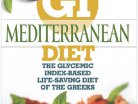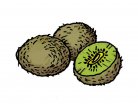According to one of the wisest and and best-known Greek proverbs, "If you are in good health, everything else will take care of itself." And while popular wisdom still holds health to be a priority, most of us inadvertently remain negligent. Usually, if a close friend or relative says something persuasively enough, we come to rely on that such counseling, regarding it as hard-and-fast truth. Within this new age of information and technology, however, we should no longer subscribe to such myths.
8 Myths That Concern Women:
1. Liposuction is a fast way to lose weight
Certainly not. Liposuction is used for the removal of localized fat deposits which, despite moderate diet and exercise, remain unaffected. But with their unnatural removal, such fat deposits will only reappear elsewhere as the body tries to compensate for the mysterious loss of weight. For Mediterranean people, fat deposits tend to be situated on the hips, stomach and abdomen, but could reappear almost anywhere after liposuction- most likely in the arms or legs. The only way to lose weight properly is to change the amount and quality of the food you eat, and to embark upon an exercise regimen at the same time. In other words, exercise and dieting is unavoidable if you intend to lose weight. Even so, it seems that liposuction has greater chances of producing the desired result when the individual is close to his or her ideal body weight. If only small amounts of fat are removed, it is possible that they won’t reappear.
2. To avoid cystitis, just wash with soap
Not always. The inflammation of the urinary bladder, a condition known as cystitis, is more common than one might think, with 2 out of every 10 women developing it over the course of their lifetimes. According to experts, while good hygiene is essential for the prevention of cystitis, soap does not do the trick. Sometimes, the microbes that cause the infection need much more aggressive means of removal than simply soap; other times, soap can be too hostile and assertive in this sensitive region, only exacerbating the onset of the infection. What experts instead recommend is the use of special soaps produced with chamomile, or certain liquid body washes with a neutral pH suitable for daily use. Both of these products should be rinsed thoroughly after their use.
3. Post natal depression is unavoidable
No. Doctors have simple, straightforward treatments for such conditions. While the first phase of post natal depression is more common, the second phase is unusual, but more severe. Three or four days after giving birth, a surprisingly high percentage of women start to feel melancholy and despondent- this is the first phase. Such an attitude usually results from stress, physical exhaustion, and hormonal changes. Two to four weeks later, the second phase could set in. The woman will start to exhibit a more intense form of depression, manifesting an indifference, perhaps even a dislike, towards her baby and her spouse. She will become negligent in her daily duties, and lose interest in the activities that she had previously enjoyed. Although this condition is rare, it is not “unavoidable;” doctors can treat it effectively.
4. Everyone should have a daily bowel movement
False. Every person, every creature has it’s own rhythms. Doctors consider that anywhere between three bowel movements a day and one every third day is normal. What would cause concern would be a change in rhythm (for example, going from daily bowel movements to one every three days), especially if that change was not progressive (over 3-4 days). In this case, one should see a doctor; the change is most likely indicative of something else.
5. Following a Caesarean section, subsequent births will also be Caesarean
No way. Although this was the case in the past, these days Caesarean sections are much less intrusive for the mother. In fact, three out of every four births following a Caesarean section are in the natural manner.
6. There’s no point in surgery for varicose veins since they’ll reappear
Nope. A varicose vein is a flaccid vein, the walls of which have lost their elasticity, and is most certainly treatable. Sometimes, treatment takes the form of injections with firming substances. Other times, surgery is required in order to remove the damaged portion, or even the whole vessel. If an individual undergoes surgery, it is quite likely that the problem will reappear. The problem however, will be in the new vein, and injections will probably now be much more effective.
7. Women with small breasts don’t need to wear bras
Negative. A bra is essential for all women. It holds the breasts steady, protects them against injury, and should be worn almost always regardless of breast size. Even so, just as important as it is to wear a bra, it’s equally important to sleep without one.
8. Weight gain is unavoidable during menopause
Not really. It sometimes happens, but it is not the rule. It is easy for a woman to gain weight during this stage of life, but it is also easy to keep it off through simple dieting and exercise until the phase passes. In most cases, the hormonal changes do not affect the woman’s potential for weight gain.
8 Myths That Concern Men:
1. A heart attack will be accompanied by great pain
Not always. There are even cases where the individual is not aware that they have had a coronary. The symptoms of your average heart attack aren’t all that obvious and can be confusing; such symptoms can include a vague feeling of discomfort, shortness of breath, exhaustion, profuse sweating, stomach pains. In this situation, seek medical assistance for the sufferer immediately. Until that is possible, give him or her aspirin, as it will thin the blood and reduce the risks that the oncoming heart attack could entail. If it turns out that it was not a heart attack, aspirin will not cause any damage.
2. Giving up smoking produces weight gain
Certainly not. The process is not that direct. However, smoking does often increase the metabolic rate, with the average smoker burning about 200 calories more per day than a non-smoker simply because he smokes. Anyone giving up smoking should therefore make a few changes in his or her diet in order to compensate from the 200 calories that will go unburned. Instead, individuals trying to quit usually turn to comfort foods to ameliorate the withdrawal symptoms. It is quite obvious that if you turn to sweets and chocolate so as to take your mind off smoking, you’re bound to gain weight!
3. All men can reduce cholesterol levels by making dietary changes
Not really. It’s true that a proper diet can help, but dietary changes alone can only be of benefit to those who have developed the problem due to poor eating. The liver is responsible for the production of cholesterol your body needs, producing approximately 80% of the cholesterol present in blood. There are other factors that can also affect cholesterol levels, the most predominant of which is simply genetics. In these cases, the problem can be dealt with through a combination of diet and medication. In all cases, however, fat intake must be reduced because it stimulates the liver’s production of more cholesterol.
4. If you’re suffering from gingivitis (inflammation of the gums), it’s best not to brush your teeth for a few days
Though this old wives tale might be comical, it is by no means true. What you need to do is simply be extra careful when brushing, so as not to damage the gums. This is also the case for people without gingivitis, that is, people with healthy gums. It is always a good idea to use a soft toothbrush and to be careful around the gums. Use mouthwash for better hygiene, especially if you feel that this less aggressive technique of brushing is much less effective.
5. Snoring is annoying, but doesn’t lead to health problems
Well, sometimes this is true, but sometimes not. Snorers can stop breathing for anywhere from 10 seconds to a minute. These pauses can lead to both simple problems, like headaches, drowsiness and exhaustion during the day, and more serious ones such as an irregular heart beat, hypertension, even strokes. In all cases, it is wise to consult a health expert, as the tendency to snore can certainly be remedied.
6. Men can’t develop lumps in the chest area
This is not always the case. Although breast cancer is indeed considered to be a female condition, for every 100 women that develop breast cancer, one man will also develop it.
7. Ulcers are caused by stress
No. This commonly held belief was uprooted in 1983, when researchers discovered that a virus was in fact to blame. A certain virus will affect the pylorus, or the opening from the stomach to the small intestine, causing the majority of ulcers to develop. Increased secretion of hydrochloric acid in the stomach is another possible cause of ulcers. Stress has the potential to aggravate such ulcers, whether they have been caused by the virus or the hydrochloric acid, but is not responsible for their emergence.
8. Prostate gland problems only affect men over the age of 50
Well, not really. Under normal circumstances, prostate dysfunction will simply develop due to the advance of years. Even so, it is not rare for younger men to develop such problems. Factors that can cause prostate dysfunction in men even younger than 40 include long-term sexual abstinence or an over-active sexual lifestyle. Prostate problems can also result from a poor diet. It is recommended that all men over the age of 40 see their doctors for regular check-ups.
5 Myths Concerning Children:
1. There’s no need to treat dental decay in baby teeth
False. While baby teeth will inevitably fall out and be replaced, any problems that emerge must still be dealt with. Dental decay can lead to premature cutting of new teeth, which can in turn impact the whole structure of the mouth cavity.
2. Suppositories are more effective than pills
No way. This is quite absurd since the absorption of suppositories by the body is not only less than that of medicine taken orally, but also less stable. Suppositories will take effect much more slowly than oral medication and can sometimes irritate the intestine. Suppositories are mainly used for babies and children too young to swallow pills or who vomit, which means that the medicine has been expelled before it can begin to act.
3. Children suffering from asthma shouldn’t play sport
Quite the contrary. Abstaining from physical activity, particularly if the asthma is an allergic condition, can cause a variety of health risks. Children should be encouraged to play sports, albeit under supervision and not on very cold days. By playing sports, a child can learn to breathe better and thereby reduce the frequency of attacks. Of course, we shouldn’t forget the effect of exercise on a child’s confidence and self-respect. Athletic activity will make a child feel energetic and full of life, thus enabling him to better deal with the stress caused by asthma attacks.
4. Acne is contagious
Completely mistaken. Acne is caused by a variety of factors, among which are hormones and bacteria, never contagion. Bacteria is to be found everywhere, even on the cleanest of skins, and most of the time, that is the only explanation for acne. The problem is dealt with by prescribing special medication, the advice of a dermatologist, even hormone therapy if deemed necessary.
5. Children shouldn’t eat fats
Wrong. Although fats should not be eaten in excess, they must be eaten in moderation. Restricting a child from fats will produce major problems in his normal development; all food groups are vital from proper growth.
The 21 Health Myths You Should Ignore
Though we have entered a new age of information and technology, many people still subscribe to commonly held misconceptions. Scroll down to read twenty-one health related myths, along with explanations to counteract such myths..
Category:
Related Articles
Most Popular recipes

































































